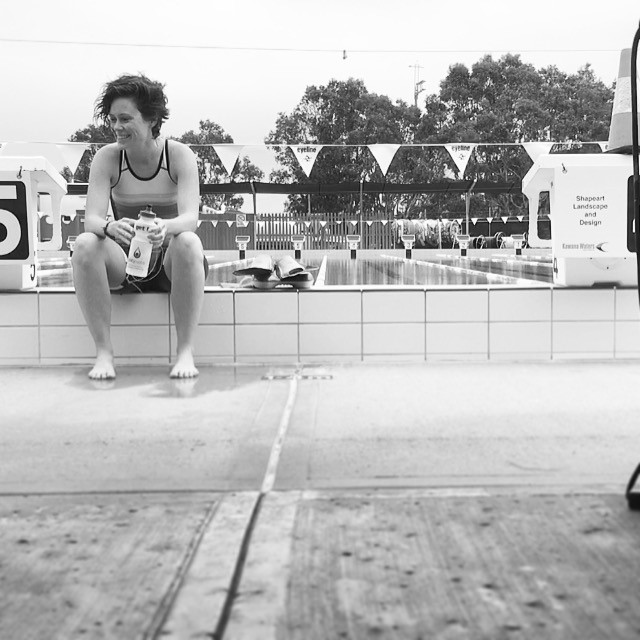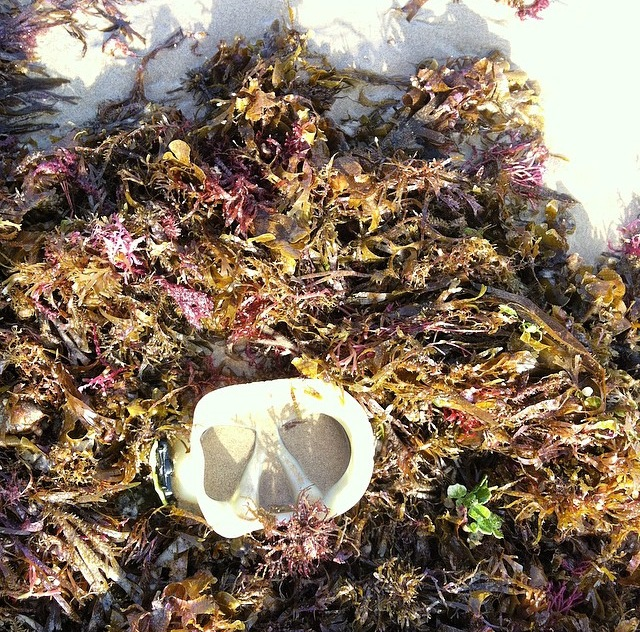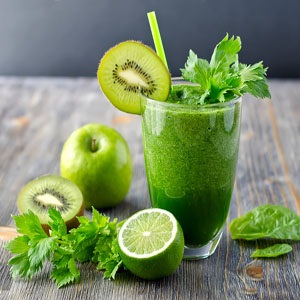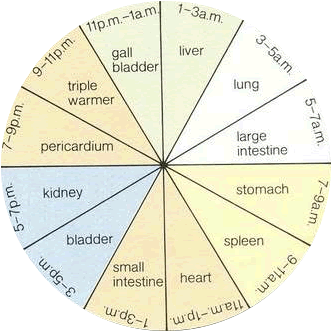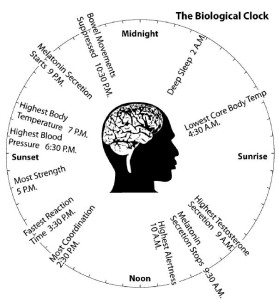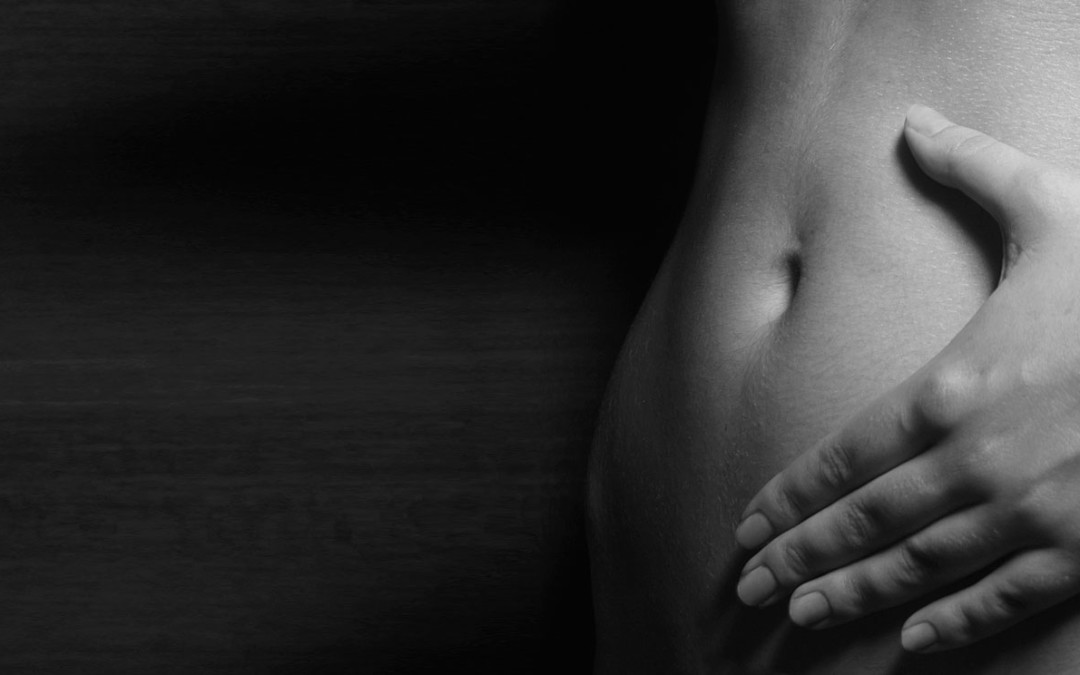What does BBT mean?
BBT stands for basal body temperature. It is your lowest body temperature in a 24-hour period.
Why do you map your BBT?
I asked clients to map their BBT if their treatment involves regulating their menstrual cycle, managing hormonal imbalance and for fertility. It is such a useful tool to understand many aspects of them as an individual woman and allows me to pin point specific imbalances. Most unexplained infertility cases are actually not infertile at all, but are actually subfertile. Through looking at charts as well as lab results and symptoms, the cause can often be found. Charting can be an excellent tool for diagnostics, especially in cases of unexplained infertility and is also a great way for woman to be self aware and gain understanding for what is going on in their bodies.
How to record your BBT
Take your temperature (with a thermometer orally or vaginally) upon waking and record it on a simple chart. This means before you get up and do your morning rituals. Your temperature can slightly increase once you are up and about getting breakfast ready, chasing kids around, exercise etc. Try to take your temperature at the same time each day or your reading may not be accurate. If the time varies, please make a note of this, as well as any illness or life changes (cold/flu, stomach bug, migraine, unsettled sleep, a sudden increase in stress etc). I always suggest to keep your thermometer by your bedside table so its always handy.
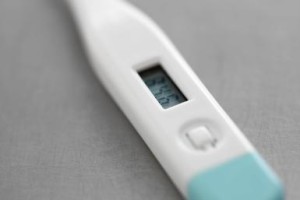
Your menstrual cycle
A women’s menstrual cycle is approximately 28-32 days. Day 1 of your period is day 1 of your cycle.
The first phase (follicular phase) is the phase in which the follicles develop. Typically we see that this level is low and steady, where Estrogen is the dominant hormone during this phase.
Around mid cycle (day 14), you may or may not see a slight dip in temperature, followed by a strong rise in temperature of approximately 0.3- 1 degree. The day before the temperature rises is the day you ovulate.
Ovulation is when you are most fertile.
The second phase (luteal phase) is the phase in which the egg travels down the fallopian tube and the process of fertilisation or implantation may occur. Typically we like to see that this phase is high and steady. Progesterone is the hormone which keeps the luteal phase at a high temperature.
What do your readings mean?
When the follicular phase is too long, too short, too high or too low in temperature, or your cycle is irregular (such as 23 days long, then 40 days long, then 50 days long, then 22 days long) this can mean there are hormonal imbalances.
What causes hormonal imbalances?
Thyroid conditions – The thyroid gland is located at the front of you neck. Thyroid hormones travel from the thyroid gland through the blood to all parts of the body, where they do their work in affecting your metabolism rate, which means how fast or slow your brain, heart, muscles, liver, and other parts of your body work. The thyroid can be tested through pathology tests to check the levels of specific hormones.
Through BBT charting, we tend to see an abnormally low or high temperature reading in the follicular phase when the thyroid is under or overactive.
Emotional stress and inconsistent sleep patterns – Often shows up as an up and down movement of temperature from day to day.
In the case of stress, we tend to see instability of temperature, and in the case of primary hormonal imbalance we tend to see either an increase or decrease in length of this phase.
Poor ovarian reserve (also known as impaired ovarian reserve, premature ovarian aging or declining ovarian reserve) and poor egg quality – Can be due to a number of reasons.
Polycystic ovarian syndrome (PCOS) – is a complex condition in which a woman’s ovaries are generally bigger than average. Polycystic means the ovaries have many cysts or follicles that rarely grow to maturity or produce eggs. Symptoms can include excessive hair growth, moodiness, weight gain, irregular cycles, no periods or a long follicular phase, acne and painful periods.
Diagnosis of PCOS is likely to involve your medical history, an examination which may include an abdominal ultrasound, and tests to measure the hormone levels in your blood.
Through BBT charting we can see if your follicular phase is longer than usual, which for PCOS can indicate insulin resistance or excess androgens (male hormones).
Insufficient nutritional elements – Poor diet and lack of nutrients can be another cause of hormonal imbalance. Diabetes can also be a culprit.
Progesterone deficiency – Mid cycle, we see a spike in temperature, which is related to secretion of the hormone progesterone and is the result of ovulation. The temperature will rise the day after ovulation occurs. If you don’t see this spike, you may not have ovulated. f there is a downward decline occurring earlier than 12 days after ovulating, this suggests that there may not be sufficient progesterone production to maintain pregnancy. Implantation may occur 7 – 12 days after ovulation, in which case you may see an implantation dip on your chart. This is a normal and healthy finding, but like implantation bleeding it is also not necessary for a healthy pregnancy.
Through BBT charting we can see if the temperature reading in the second phase of the cycle (luteal phase) does not remain steady, your progesterone secretion may not be enough to maintain implantation and pregnancy. If the length of this phase is either too long or too short, this can indicate problems with the health of corpus luteum, or nutritional deficiencies (the corpus luteum is the outer part of the follicle left after you have ovulated, which continues to secrete the hormone progesterone allowing you to maintain pregnancy).
Perimenopause and menopause – A woman’s ovaries gradually decrease production of estrogen and progesterone with age.
There are many other more complex breakdowns of the variations in basal body temperature charting as well.
What is helpful to balance hormones?
In Chinese medicine we use diagnostics, acupuncture, herbal medicine, heat therapy, nutrition and lifestyle care to treat hormonal imbalances and other gynaecological factors. Depending on which scenario (above) you are, will determine your treatment.
Treatment plans for preparing to conceive specifically, are designed to optimise ovarian function, sperm and egg vitality, regulate the immune system, reduce stress, promote restful sleep, promote digestion, and weight loss if necessary. Treating gynaecological conditions have also proven success in regulating menstrual cycles and improving fertility.
Chinese medicine can work safely in accordance with IVF to improve the outcome. Acupuncture protocols will help to improve blood flow and drug delivery to the ovaries and uterus during the stimulation phase, improve rates of implantation of embryos and reduce stress and side effects.
IVF is the process of fertilising eggs with sperm outside of the human body. Once the eggs are fertilised, the resulting embryos are placed in the woman’s uterus in the hope that a successful pregnancy will follow.
Information derived from Lyttleton, Jane (2013) Treatment of Infertility with Chinese Medicine, Second edition.
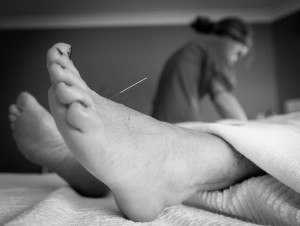
What do the treatments involve?
Depending on why your hormones are imbalanced or other gynaecological factors, will determine the treatment plan and outcome. As a practitioner I advise regular treatments such as weekly, in accordance with health changes you need to do at home, such as nutritional changes or herbal remedies to assist the treatment outcome. The male partners are also advised to receive treatment.
I advise all women seeking treatment to start BBT mapping their cycles and fill in a symptom chart which includes daily symptoms relating to; energy levels, PMS, menstrual cramping, vaginal discharge and mood changes, to name a few. The symptom chart allows me to see what is happening in between your acupuncture treatments so that I can treat you accordingly.
Changes to your plan will be made for IVF protocols and specific gynaecological conditions. Acupuncture can be used to manage anxiety and any side effects you might experience such as fatigue, moodiness, abdomen swelling and discomfort that can be experienced with the IVF process.
Please see the FAQ’s page and What to Expect page for more information.
Other factors to consider regarding your fertility and gynaecological health
Environmental toxins – clean up your environment at work and at home – exposure from various sources such as BPA in plastics, pesticides in food.
Do you exercise? Adopting the right amount of exercise is important, however exercising too strenuously releases the stress hormone Cortisol which can interfere with reproductive organs. Opt for gentle exercises such as swimming, yoga, tai chi and pilates.
Sanitary products with bleach and other chemicals that are being inserted into the body – organic tampons and pads are now easily found in major supermarkets and health food stores and their quality and absorpancy is nothing less. Menstrual cups found here > https://www.menstrualcupsaustraliaonline.com.au/what-is-a-menstrual-cup/ are also becoming more popular as they are sanitary, medical grade silicone, environmentally friendly and save you money (they cost $40-60AU and will last you 10 years!). All you have to do is wash them out and boil them in hot water at the end of your period to kill any bacteria. Many women experience less period pain when using a cup !
Look after your abdominal area – A poor diet can cause your digestive system to malfunction. Unhealthy foods collect in the abdominal environment, blocking the blood circulation needed to nourish the area. Pay attention to foods that cause bloating, fatigue, wind, abdominal cramps, irregular bowel motions or sensitivity. Acupuncture and herbs can stimulate circulation and improve the function of the digestive system.
Start with a healthy body weight – Women who are either underweight or overweight can ovulate less regularly, and men in the same situation will produce fewer and less healthy sperm.
Are you stressed – Physically, mentally or emotionally? Stress is a huge factor for fertility, especially if you and your partner have been trying for a baby for a long time. However other stressors in life such as work or relationships also play a part. Find time to resolve stress and put relaxation time in your diary! Talking to a friend or professional may also be helpful to get things of your chest.
Be aware of your immune system – If you are getting every cold/flu going around, having upset digestion from a gut bug or generally feeling unwell then you are not in optimal health to conceive.
For women – stay warm. In Chinese medicine, we place a strong emphasis on keeping warm to encourage blood flow. Keeping your ‘midriff’ and lower back warm is said to encourage a ‘warm womb’. Swimming on your period is also not recommended, as your cervix is open when menstruating, the cold temperature of the water enters a warm body, causing the ‘cold’ to lodge inside. Remember its all about the warmth and circulation! However for men its important that their testicles are kept cool as heat can affect sperm quality.
Are you sleeping well throughout the night? Even just one week without well-rested sleep plays havoc with your hormones. Opt for the same bed time every night such as no later than 10pm. Avoiding stimulants such as caffeine after 3pm is important so that you aren’t kept awake.
Have you been on the pill for a long time where your hormones have been told what to do for years? Your body will need time to adjust to its own cycle. Acupuncture can regulate the menstrual cycle and manage symptoms such as fatigue, menstrual headaches, tender breasts and mood swings.
Do you have any nutritional deficiencies? For example, your uterus needs a certain amount of iron for the lining of the uterus to thicken for conception, if your iron levels are low then conception decreases.
Do you have a family history of any gynaecological conditions? Ask the women in your family about their fertile health.
Be aware of infection – Previous STD’s and noting any thrush or constant urinary tract infections could make conception more difficult.
Having a GP check up – blood tests, ultrasounds and infection tests are all helpful to rule out anything first.
Lastly, do you have time to welcome a baby into your life? Are you working so many hours already, trying to make ends meet financially or too many other commitments for a baby to come into your life?
Take the time to cover all bases listed above so your health is the priority 🙂
Take care of you, see you in the clinic,
TK xx
Learn more > http://www.tanyakeamwellness.com
